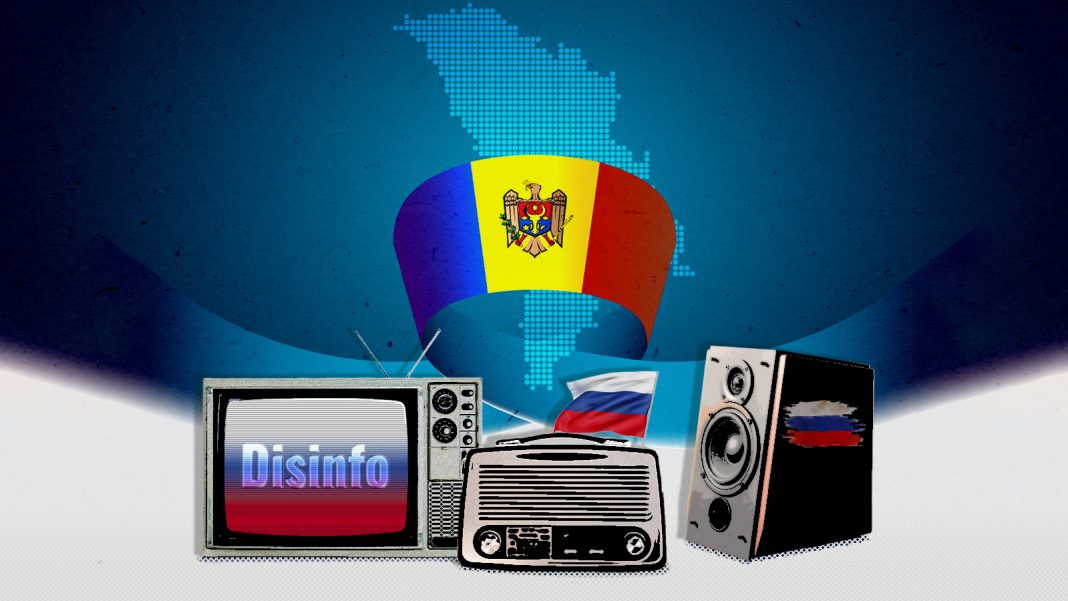Since the early days of Moldova’s independence from the Soviet Union in 1991, Russia has tried to maintain the country in its sphere of influence. Sometimes these efforts have been visible – when, for example, Russia banned wine and fruit imports from the country (Moldovan farmers had a resounding response). Sometimes the effort has been more subtle, as when Russian media support certain Moldovan political parties.
But every time people were reminded that their country is not as independent, as they wanted it to be. In particular, the Kremlin tries hard to prevent a closer relationship between Moldova and the European Union. The allusion of someone trying to take its independence away triggered anxiety and a fear of losing a most valuable asset. These fears were repeatedly misused by politicians. When the idea to get Moldova closer associated with the European Union was born, Kremlin adapted and transformed this into a scaremongering campaign, both directly and through its assets in Moldova. Pro-Kremlin politicians and media scared Moldovans that getting closer to the EU would be bad for the country, its people and traditions.
Since then, defying logic and consistency, several main myths keep on being pushed by Kremlin propaganda machine.
Myth 1 – Moldova already lost its independence, as the country is ruled from outside (but only from the West and only from time to time)
Pro-Kremlin politicians, Telegram channels, and media outlets push this narrative. The idea is that the EU and the US control newly elected officials and make decisions regarding Moldova’s future.
While such disinformation tries to frighten Moldovans with the claim that their politicians are puppets controlled by the West, pro-Kremlin commentators never talk of losing independence to puppets controlled by Russia. The idea that Moldovans and their institutions would deliberately choose closer ties with the EU because of shared values and interests is excluded by default.
Myth 2 – Moldova is going to lose its land
Even having candidate status for EU membership means that Moldovan authorities are allegedly obliged, under secret protocols, to allow foreigners to buy land. Former President Igor Dodon said that sales of agricultural land would be a hidden pre-condition for EU membership. This would mean that the very next day after Moldova’s accession to the EU, Germans, French, Dutch and others will come to Moldova to buy our precious fields for pennies. Therefore, the Moldovans would lose not only that abstract notion of independence, but literally their own land.
The fact that it did not happen to any other country that became an EU member since the foundation of the EU is not an obstacle to scare people.
Myth 3 – If Moldova becomes a member of the EU, Brussels will make all decisions
This type of disinformation relies on conspiracy thinking by promoting the idea that hidden ‘elites’ decide the future of other people.
In the EU, this narrative asserts, Moldova would lose its sovereignty and become what it was during Soviet times: a small part of a big state-like bloc, but ruled by Brussels bureaucrats. Such narratives started back in 2014, when Chisinau and Brussels signed an Association Agreement. Since then, they have become more elaborate. For example, Russian Foreign Minister Lavrov claimed that the EU only wants access to Moldova’s market.
The propagandists ignore, however, the way that the EU makes decisions. They do not talk about the consensus that EU countries need to decide certain policies. Or the unanimity required in the European Council when, for example, granting candidate status to new aspiring members.
Myth 4 – Soros Foundation rules Moldova
Many of the country’s current leaders participated in programmes that aimed to develop Moldovan civil society. Those programmes included NGOs funded, in part, by the Open Society Foundations, founded by philanthropist and former financier George Soros. For some, this means that Soros now rules the country or has appointed his own government. Pro-Kremlin outlets often target Soros, accusing him of organising colour revolutions and attacking traditional values.
Myth 5 – Romania is going to take over Moldova
This is a favourite narrative of left-wing parties, often repeated. The most recent example came from former President Igor Dodon, who said that NATO is pushing Romania to annex Moldova. At around the same time, Russian deputies, Russian media, different Telegram channels, and Twitter accounts spread a video allegedly showing Romanian military vehicles heading towards Moldova, or to the Transnistrian region, or to Ukraine via Moldova. In an official press release, the Romanian Ministry of Defence explained that the video showed vehicles moving around inside Romania.
As the first country to recognise Moldova’s independence, Romania has repeatedly stated that it respects the country’s sovereignty.
Still oscillating between Russia and the West, Moldova is approaching the 31st anniversary of its independence with the same label of one of the poorest country on the continent.
Regardless of their political affiliations, Moldovan officials agree only on one thing: that during these three decades this exact oscillation is what holds the country back and impedes its development.
What is really needed is not scaremongering but a genuine political debate that would help people choose different futures instead of fearing conjured boogeymen.
Towards a future without fear
In 1994 – three years after declaring its independence from the Soviet Union – Moldova signed a Cooperation and Partnership Agreement with the EU. Since then, the country has moved hesitantly on the European path, sometimes dragging its feet and sometimes making extra efforts to implement EU standards.
It is not pushed towards this direction, it is finding its own ways to get closer – via independent, politically mature choice. The candidate status Moldova has gained in 2022 is a clear sign that serious reform efforts can bring real benefits. The disinformation feeding off people’s fears, however, remains a constant threat.





